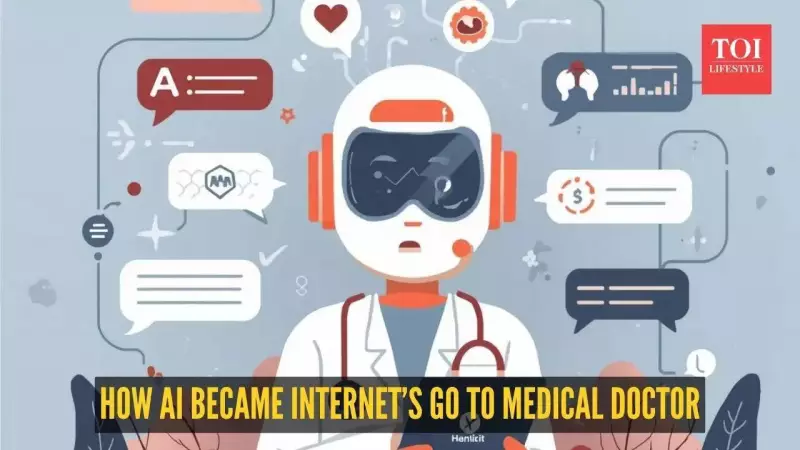
In a telling sign of the times, a growing number of people in India are finding a surprising source of solace for their health concerns: artificial intelligence. As hospitals overflow and doctor appointments are booked months in advance, a quiet rebellion is taking root, with individuals increasingly consulting AI chatbots not just for convenience, but for genuine comfort and a listening ear.
The Great Shift: From Clinics to Chatbots
The latest survey numbers capture this dramatic change in sharp focus. The data reveals that about one in six adults, and nearly a quarter of adults under the age of 30, now regularly consult an AI bot like ChatGPT for medical information. This trend highlights a deep-seated frustration with a healthcare system where time is scarce, treatment feels rushed, and simple reassurance is becoming a luxury.
Driving this shift are experiences shared by hundreds with The New York Times. People described waiting for months to secure a simple appointment, spending hours in crowded clinic waiting rooms, and feeling brushed off during consultations so short they barely had time to explain their symptoms. For many, high medical bills add insult to injury, feeling like a punishment for simply needing help.
Why Chatbots are Winning Hearts
Against this challenging backdrop, chatbots offer something seductively simple: a space without queues, billing codes, or time limits. The information is free or almost free, providing a pressure-free environment to discuss complicated fears without being confined to a strict 15-minute slot.
However, the appeal goes far beyond mere accessibility. Users report that the tone of these AI interactions matters just as much. Chatbots apologize for discomfort, praise the importance of questions, and express unlimited empathy. One woman, who felt dismissed by her actual doctor, received gentle reassurance from an AI, leading many to describe the experience as a "kinder version of health care." This points to an intimate need being met: people aren't just asking for facts; they are asking to be heard, and chatbots provide a steady, patient presence willing to "listen" endlessly.
The Critical Trade-Off: Access vs. Accuracy
Doctors interviewed for the report acknowledge the systemic flaws that push patients toward AI. They live inside these flaws every day. Yet, they voice a significant concern about the trade-off. When patients lean too heavily on chatbots, they risk relying on systems that can, and frequently do, produce incomplete or entirely fabricated answers, a phenomenon especially dangerous when medical stakes are high.
There is a dual reality at play. On one hand, doctors note that patients using AI sometimes arrive better prepared, having checked symptoms and understood terminology more clearly. But the trouble begins when these tools start replacing doctors outright.
Research underscores these risks. A study from Cornell University showed that most AI models now omit the disclaimers that once accompanied health queries. Instead, they routinely propose diagnoses and recommend treatments, despite companies like OpenAI and Microsoft stating that users should not rely on them for medical advice. An online study by Oxford researchers found that participants using chatbots to navigate a medical scenario chose the correct next step—like calling an ambulance—less than half the time.
This tension between the profound need for accessible, compassionate care and the critical importance of medical accuracy now sits at the center of a debate shaping the future of healthcare in India and worldwide. As the system struggles with time, the chatbot always has some to spare, creating a complex new dynamic in the patient-doctor relationship.






